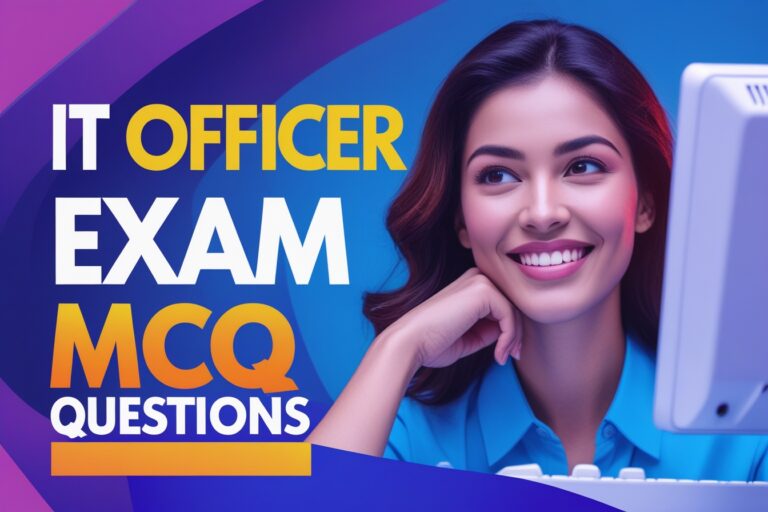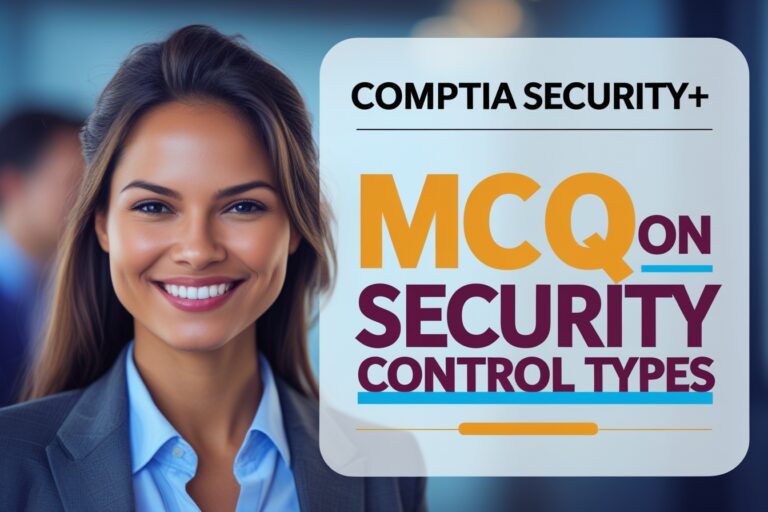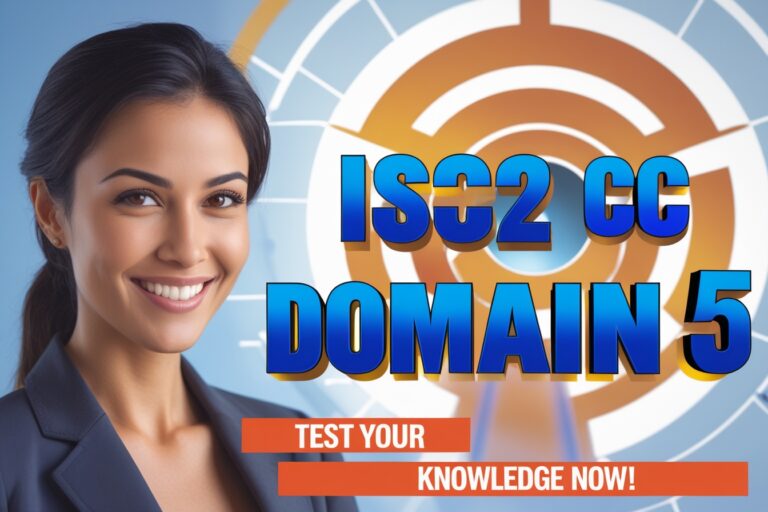1. …………………. is the process, which controls the changes made to a system and manages the different versions of the software project.
A) Software maintenance
B) Configuration management
C) Software re-engineering
D) Software refactoring
2. The process of changing a system after it has been delivered and is in use is called …………..
A) Software maintenance
B) Configuration management
C) Software re-engineering
D) Software refactoring
3. ………………. is concerned with taking existing legacy systems and re-implementing them to make it more maintainable.
A) Software maintenance
B) Configuration management
C) Software re-engineering
D) Software refactoring
4. ……………….. is the process of factoring the design module, in which you should be able to clearly understand to concept of configuration management.
A) Software maintenance
B) Configuration management
C) Software re-engineering
D) Software refactoring
5. The configuration management plan should include which of the following information.
i) The definition of what entities are to be managed and formal scheme for identifying these entities.
ii) A description of the records of the configuration management process which should be maintained.
iii) The configuration management policies, which are used for, change control and version management.
A) i and ii only
B) ii and iii only
C) i and iii only
D) All i, ii and iii
6. ……………… process involve technical change analysis, cost benefit analysis and change tracking.
A) Release management
B) Version management
C) Change management
D) Configuration management
7. ………………. is complicated by the fact that customers may not actually want a new release of the system.
A) Release management
B) Version management
C) Change management
D) Configuration management
8. The first stage in the change management process is to complete a …………………….
A) change request form
B) change assessment
C) change costing
D) change control board
9. ………………….. is a formal document where the requester sets out the change required to the system.
A) change request form
B) change assessment
C) change costing
D) change control board
10. ………………. decides if the change is economically justified and if there are good organizational reasons to accept the change.
A) change request form
B) change assessment
C) change costing
D) change control board
11. ……………….. decides if the change is economically justified and if there are good organizational reasons to accept the change.
A) change request form
B) change assessment
C) change costing
D) change control board
12. A release is not just an executable program or set of programs which usually includes.
i) System files which are needed for successful system operation.
ii) Electronic and paper document describing the system
iii) Configuration files defining how the release should be configured for particular installations.
A) i and ii only
B) ii and iii only
C) i and iii only
D) All i, ii and iii
13. ………………. involves managing large amounts of information and ensuring that system changes are recorded and controlled.
A) Release management
B) Version management
C) Change management
D) Configuration management
14. ………………… means changing the software to some new environment such as a different hardware platform or for use with a different operating system.
A) Adaptive maintenance
B) Corrective maintenance
C) Perfective maintenance
D) System maintenance
15. ……………………. involves implementing new functional or non-functional system requirements.
A) Adaptive maintenance
B) Corrective maintenance
C) Perfective maintenance
D) System maintenance
16. The documents which may be produced to aid the maintenance process includes,
i) The requirements document and as associated rationale.
ii) A document describing the overall system architecture.
iii) For each component, a specification and design description.
A) i and ii only
B) ii and iii only
C) i and iii only
D) All i, ii and iii
17. The principal technical and non-technical factors which affect maintenance are
i) module independence ii) programming style
iii) software reliability iv) staff stability
A) i, ii and iii only
B) ii, iii and iv only
C) i, ii and iv only
D) All i, ii, iii and iv
18. Which of the following is/are the technical factors that affect the maintenance process,
i) Module independence ii) Programming style
iii) Program age iv) Program validation
A) i, ii and iii only
B) ii, iii and iv only
C) i, ii and iv only
D) All i, ii, iii and iv
19. ………………… of information systems is an activity that will absorb information technology resources for many years.
A) Re-engineering
B) Re-structuring
C) Re-factoring
D) Re-programming
20. …………………………… is the process of factoring the design module, each modules factored into the components, which is more readable and easier to understand.
A) Code restructuring
B) Forward Engineering
C) Data Structuring
D) Software Refactoring
Answers
1. B) Configuration management
2. A) Software maintenance
3. C) Software re-engineering
4. D) Software refactoring
5. D) All i, ii and iii
6. C) Change management
7. A) Release management
8. A) change request form
9. A) change request form
10. D) change control board
11. D) change control board
12. B) ii and iii only
13. B) Version management
14. A) Adaptive maintenance
15. C) Perfective maintenance
16. D) All i, ii and iii
17. C) i, ii and iv only
18. C) i, ii and iv only
19. A) Re-engineering
20. D) Software Refactoring









